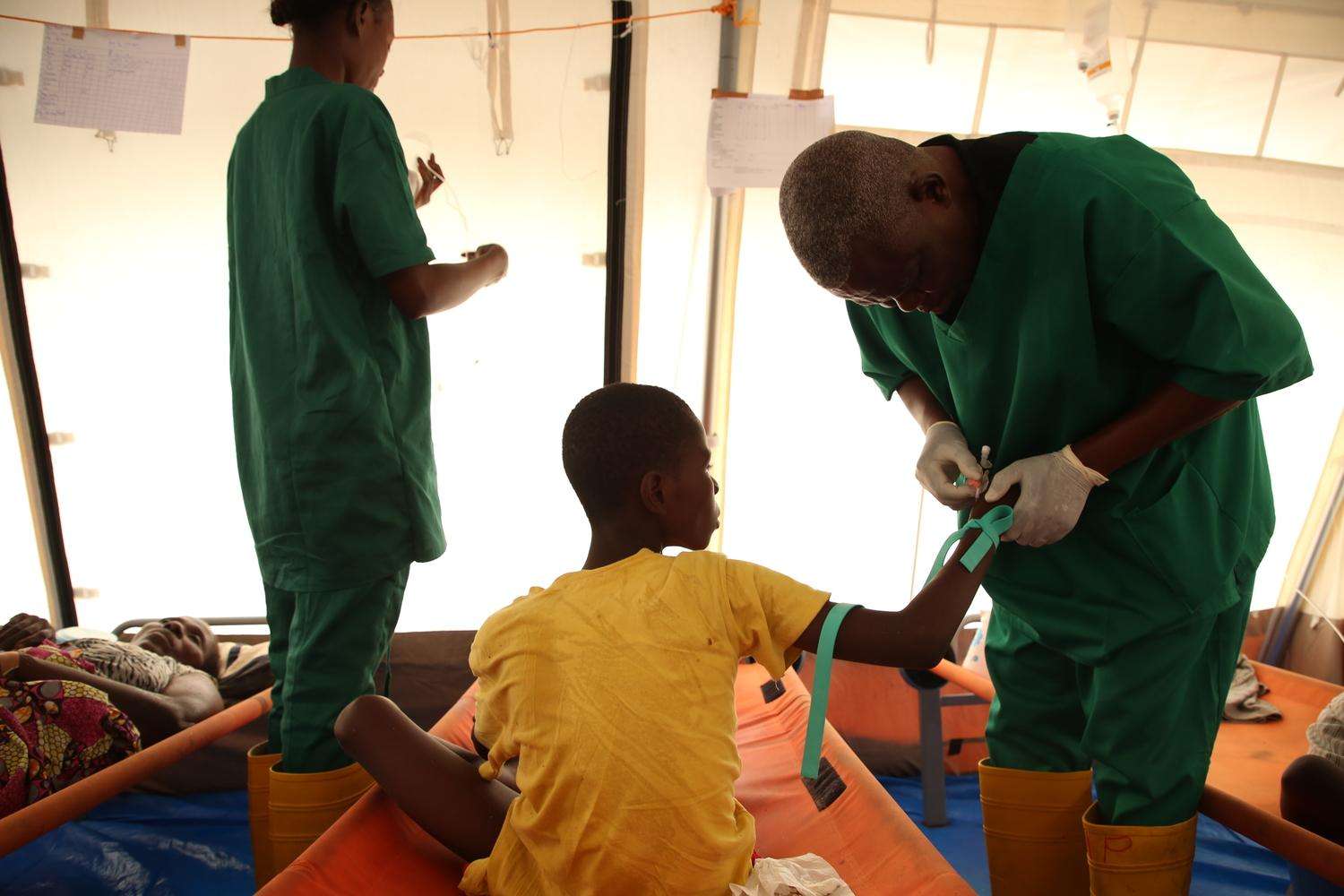Democratic Republic of Congo (DRC) is currently facing its worst cholera outbreak in more than 20 years: in 2017, 55,000 people fell ill across 24 of the country’s 26 provinces, and 1,190 people died. Doctors Without Borders/Médecins Sans Frontières (MSF) is at the forefront of the medical humanitarian response, treating nearly half of all cases nationwide (about 25,300 people). MSF’s cholera response is focused primarily in the provinces of Kongo Central, Kwilu, Kasaï, Haut Lomami, Maniema, Tanganyika, South Kivu, North Kivu, Ituri, and Bas-Uélé. This is the country’s most severe cholera outbreak since 1994.
Cholera Reaches the Capital
The epidemic has now reached Kinshasa, DRC's capital. This megalopolis of 12 million people is the country's trade center and home to one in six Congolese people. The city's population is particularly vulnerable to cholera due to poor access to safe drinking water and sanitation. The local health infrastructure is not adapted to provide treatment in cholera-affected areas. From the end of November 2017 to January 22, 2018, health authorities reported 826 new suspected cases and 32 deaths.
"A few days ago I got very ill, with severe diarrhea and vomiting," said Mary*, a patient who was treated at the MSF health facility in her neighborhood, Camp Luka. Diarrhea and vomiting caused by cholera can lead to rapid and potentially deadly dehydration. "In my neighborhood there were already a lot of cholera cases. That’s why I asked my husband to take me to the health center. I was very weak, so we tried to take a moto-taxi but everyone refused us. Here in Kinshasa there’s a lot of stigma attached to cholera—it’s a shameful illness. My husband had to carry me on his back for three kilometers to get me [to the health center]."
Tackling the Outbreak
To contain the epidemic in Kinshasa, teams from MSF’s Congo Emergency Pool—a rapid-response emergency health service provider—bolstered the two cholera treatment units (CTUs) in Camp Luka and Pakadjuma, ensuring twenty-four-hour patient care in the most-affected health zones (Binza Méteo, Kitambo, and Limete). Since MSF began its response on January 16, teams have treated 157 patients, nearly 40 percent of whom were severely dehydrated on arrival; 133 patients have been discharged and one person died.
"Faced with the spread of this epidemic, as of last week we have stepped up our intervention by treating patients in the treatment units and by putting in place 10 rehydration points, epidemiological surveillance activities and education, and an ambulance service," said Jean Liyolongo, a member of MSF’s Congo Emergency Pool. "Cholera is affecting parts of Kinshasa that are densely populated, so it’s crucial to act quickly to prevent the spread of this epidemic. By providing quick and free treatment for patients, alongside support to health care providers, we can ensure proper care for those who are ill."
MSF has worked in DRC since 1981 and currently works in 20 of the country’s 26 provinces, providing medical care to victims of conflict and violence, displaced people, and those affected by epidemics or pandemics like cholera, measles, and HIV/AIDS. Emergency response teams stand ready to react across the country in case of an epidemic, natural disaster, or conflict.




